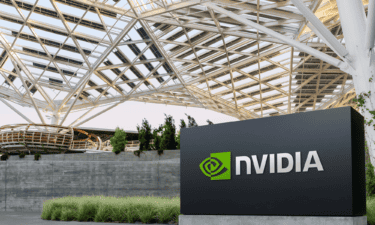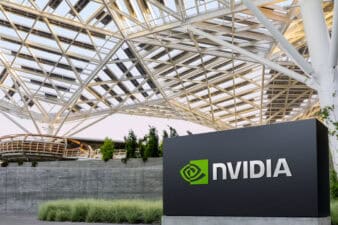Investors in BlackBerry Ltd. (TSX:BB)(NYSE:BB) shares saw their accounts registering a sweet 12.85% closing gain on their BlackBerry long positions on Wednesday as the stock rallied to a new multi-year high after announcing a software deal with Asian Internet giant Baidu Inc. (NASDAQ:BIDU).
BlackBerry has finally penned a deal with Baidu that will see BlackBerry’s flagship software offering QNX becoming the secure, reliable, and trusted safety certified platform making up the “foundation for Baidu’s Apollo autonomous driving open platform” as well as being integrated with Baidu’s vehicle infotainment, connected car and mapping system offerings.
I had previously written about the deal on December 8, when it was still an unconfirmed rumour, but I evidently understated the bullish impact the announcement could have on BlackBerry’s equity valuation.
The resurrecting Waterloo giant’s share price has surged far higher than it did in early June last year, after Andrew Left of Citron Research made the bullish call that the tech company could be a high premium takeover target.
Why did the stock rally this high?
BlackBerry’s stock has rallied as much as 20.73% in the first two trading days of 2018 as current positive momentum was accelerated by a positive news announcement.
BlackBerry was already experiencing positive momentum after its share price rose 6.98% on January 2 to close at $15.02 with no stock-specific bullish news items during the trading session.
The stock rally on Wednesday to hit a new four-year high of $16.98 on the TSX after the Baidu deal news could have been magnified by the already bullish momentum on BlackBerry shares during the first trading week of 2018.
Most notably, BlackBerry’s stock had almost given up all its price gains amassed on December 20, 2017 after the company beat market expectations in its recent quarterly results. The late December slide could have been a result of profit-taking sales by investors after a good annual performance that saw the stock rise 50% at the end of 2017.
It is no surprise that the stock rebounded on January 2, and that momentum fed into the double-digit jump on the latest positive news the following trading day.
Is the rally sustainable this time?
BlackBerry’s turnaround story is shaping up very well after the market-beating revenue growth performance during three of the last four quarters.
BlackBerry’s QNX software platform offering is getting critical market endorsement by high value opinion leaders in a promisingly massive emerging industry segment, which could easily be the base platform of choice for the autonomous driving market.
To quote my previous article:
“BlackBerry is increasingly getting some significant endorsement from heavyweights in the autonomous driving industry, including Qualcomm, Ford, Delphi Automotive Plc, and Tata Elxsi, who are picking out BlackBerry for its trusted and reliably secure QNX and IoT (Internet of Things) systems for connected cars and autonomous driving vehicle offerings of the future.”
There could be huge financial benefits for BlackBerry once the new autonomous driving industry starts generating significant sales.
The current positive sentiment on the stock since late September last year has been magnified by the Baidu deal and could linger for several more months.
Foolish bottom line
Like several other BlackBerry deals in the past, the latest Baidu deal provides neither any solid potential revenue figures nor any pricing guidelines to add clarity in any intrinsic valuation models, leaving analysts and investors with a wide valuation and speculation spectrum that is very susceptible to sentiment swings.
Sentiment can suddenly change, and the new BlackBerry equity valuation premium levied on Wednesday may soon be wiped away as the latest hype fades.
That said, BlackBerry is a potentially rewarding long-term contrarian play for 2018 as the resurrection theme gathers new momentum. A sizeable bet on the stock, say, up to 2% of a portfolio, could be rewarding, even more so if executed through buying any dips during the year for a long-term holding period.







